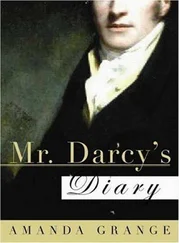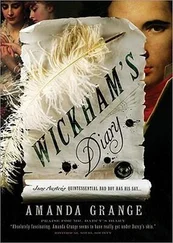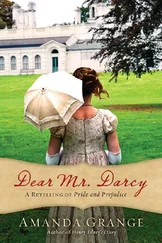Louis Barbé - Kirkcaldy of Grange
Здесь есть возможность читать онлайн «Louis Barbé - Kirkcaldy of Grange» — ознакомительный отрывок электронной книги совершенно бесплатно, а после прочтения отрывка купить полную версию. В некоторых случаях можно слушать аудио, скачать через торрент в формате fb2 и присутствует краткое содержание. Жанр: foreign_antique, foreign_prose, на английском языке. Описание произведения, (предисловие) а так же отзывы посетителей доступны на портале библиотеки ЛибКат.
- Название:Kirkcaldy of Grange
- Автор:
- Жанр:
- Год:неизвестен
- ISBN:нет данных
- Рейтинг книги:5 / 5. Голосов: 1
-
Избранное:Добавить в избранное
- Отзывы:
-
Ваша оценка:
- 100
- 1
- 2
- 3
- 4
- 5
Kirkcaldy of Grange: краткое содержание, описание и аннотация
Предлагаем к чтению аннотацию, описание, краткое содержание или предисловие (зависит от того, что написал сам автор книги «Kirkcaldy of Grange»). Если вы не нашли необходимую информацию о книге — напишите в комментариях, мы постараемся отыскать её.
Kirkcaldy of Grange — читать онлайн ознакомительный отрывок
Ниже представлен текст книги, разбитый по страницам. Система сохранения места последней прочитанной страницы, позволяет с удобством читать онлайн бесплатно книгу «Kirkcaldy of Grange», без необходимости каждый раз заново искать на чём Вы остановились. Поставьте закладку, и сможете в любой момент перейти на страницу, на которой закончили чтение.
Интервал:
Закладка:
On their arrival in London, the envoys lost no time in informing Henry of the object of their mission. Nor does the King, on his side, appear to have acted less expeditiously. Before the end of the month, he wrote to Admiral Tyrrell, informing him that he had ‘been moved to send forth presently to the sees the number of six ships furnished for the wars, that is to say, the Pauncey , the Mynyon , the Hart , the Jennet , the Dragon , and the Lyon ,’ and had appointed him to the command. According to further instructions, Tyrrell, on reaching the Firth, was to land parties at unprotected points on either shore, ‘to spoil and burn small villages and houses,’ and thus, not only strike terror into the population, but also create a diversion in favour of the Castle, from the siege of which forces would probably be withdrawn, and sent to check the progress of the English raiders. The Master of Rothes and the Laird of Grange were to be told that his Majesty was ‘sorry to understand their care and trouble for their defence,’ and that ‘conforme to the request of Mr Kirkcaldy to helpe them with some vitail and munition,’ one of the six ships was laden with supplies, which were to be handed over in such quantity as the Admiral might judge necessary.
Another paragraph in the same letter explains one of the reasons of the King’s liberality, and shows on what condition Kirkcaldy had been able to secure help from England. ‘And, because the sayd Mr Kirkcaldy, who is sone and heire to the Lard of Grange aforesaid, at his late beeing with us, signifyed by his letters, on the behalf of the Master of Rothes and his father, that for a token of their service and goode wille to us, they wold delyver in hostage the sonne of the Erle of Arran, ye shal cause request to be made, in our name, for him, setting forth that besides the performance therby of the promesse of the sayd Kirkcaldy, and the confirmation of our credit and estimation of them, they shal doo a thing so much to our contentation, as shal give us occasion the nerer to stykk unto them, and temploye our force to the repulse of their enemyes the more willingly.’
Whilst Henry Balneaves and John Lesley remained in England ‘for forming and perfyting all contracts betwixt the defenders and King Henrie,’ Kirkcaldy returned to St Andrews. The besieged had not yet been able to make that ‘plaine passage by an yron gate, through the east wall to the sea, which greetly releeved them’ at a later stage of the blockade; and, when the English ships arrived, there was consequently some difficulty in effecting communication with them. Ultimately, however, Kirkcaldy succeeded in landing with the supplies; but it was ‘not without some losse of men.’
On the side of the besiegers, Kirkcaldy’s departure which, according to the Diurnal of Occurrents, took place on the 26th of October, had filliped the leaders into a display of energy. On the Tuesday following it, the Governor and the Lords with him, anxious to put an end to the siege before the arrival of supplies from England, sent to offer the rebels the restitution of their lands, heritages, tacks, benefices and moveables, on condition that they should surrender the Castle and give up young Hamilton. The proposal was met with a curt refusal. Three days later preparation was made for a vigorous attack; and four cannons, a battering culverin, two smaller culverins, and some double falcons were sent to the west trenches for the purpose of battering the sea-tower that stood at the north-west, and also the west wall. Then, when all this artillery had been brought into position, the cannonade began from two sides at once. On the first day it lasted without cessation from seven in the morning till four in the afternoon. The fire was unusually effective. That from the new battery brought down all the battlements and the top-storey of the sea-tower, and the whole roof of the apartments overlooking the shore. On the land-side the feathered bolts shot from the balistæ at the hall and chapel, broke in the roof, and drove those of the garrison who were stationed at that point to the safer shelter of the inner walls. Nor were the besieged inactive. Pointing their own cannon at the attacking artillery they retaliated by killing ‘John Borthwick, principal gunner, and sundry of the soldiers and men of war,’ and by wounding the Earl of Argyle’s master-gunner so seriously that he was reported to be still bedfast nearly two months later. On the morrow the Governor’s artillery again opened its fire, and kept it up as vigorously, though not more murderously, than the day before. Further damage was done to the high parts and roof, but the garrison once more escaped serious injury. The assailants were less fortunate, for they again lost a gunner, James Law, and three other men with him. Such ‘great slaughter made upon their gunners’ disheartened the leaders of the royal troops; and tacitly recognising their inability to take the Castle by open force, ‘they gave up further shooting with great artillery, and continued the siege with blockading and small fire arms.’
The provisions which Kirkcaldy had obtained and brought from England afforded but brief relief to the beleaguered garrison. From the 22nd of November to the 10th of December there was no flesh-meat within the Castle; and the other supplies gradually dwindled down to ten boles of meal and five puncheons of wine. But the desperate defenders showed no sign of wavering. As a result of their great watching and waking, of the want of flesh, and of the bad quality of the fish which had become their chief diet, Walter Melville – one of the leaders – and twenty men were stricken with a deadly sickness; but this only moved their comrades to use greater exertions and, in the words of one of them, daily to make slaughter of their enemies. Nor were their efforts limited to that. Whilst some were fighting others were working at the construction of a postern door, and of a trench leading from it to a rock lying off the kitchen tower. When this was at length completed two men were able to set out nightly in a small boat, and, landing at Tentsmuir, to obtain a scant supply of flesh and flour from a secret friend, the Laird of Montquhanny.
About the middle of December the besieged were reduced to such extremities that a well-conducted and vigorous attack could scarcely have failed to give Arran possession of the Castle. Fortunately for them, however, he was not fully aware of their desperate condition, whilst, on the other hand, the circumstances in which he was himself placed made him long for the termination of the protracted siege. A violent pestilence that broke out in St Andrews and threatened to spread through the beleaguering army, gave him a plausible excuse for opening negotiations without appearing to be driven to it either by the obstinacy of the rebels or by the repeated protests addressed to him and his Council by Henry VIII. on their behalf.
On the 17th of December, Lyon Herald approached the walls and sounded a parley. That no undue haste on their part should reveal how anxious they themselves were for a cessation of hostilities, the leaders did not condescend to notice him, and he was obliged to return to the Governor and the Council with the report that he could not obtain speech of them. Later on in the day a second attempt was more successful; and consent was obtained to an interview between the rebel leaders and two envoys from the camp – the Justice-Clerk and the Provost of Aberdeen. The assumed indifference of those within the Castle caused the negotiations to drag on slowly through several days; and, at the very last moment, the demand that William Kirkcaldy should be handed over as a hostage, was on the point of making them fall through altogether. Finally, however, on the 22nd of December, a truce was agreed upon. The conditions were that the garrison should retain the Castle until the Regent obtained from the Pope absolution for all who had been concerned in the murder of Cardinal Beaton; that they, their friends, families, servants, and others pertaining to them, should never be pursued by law, but should enjoy all the privileges, spiritual and temporal, of which they had been in possession before the murder, ‘even as if it had never beene committed;’ and that, whilst James Hamilton was still kept as a hostage on the one side, David and James Kirkcaldy should be delivered to the Regent on the other, as pledges to insure the surrender of the Castle when the papal absolution arrived.
Читать дальшеИнтервал:
Закладка:
Похожие книги на «Kirkcaldy of Grange»
Представляем Вашему вниманию похожие книги на «Kirkcaldy of Grange» списком для выбора. Мы отобрали схожую по названию и смыслу литературу в надежде предоставить читателям больше вариантов отыскать новые, интересные, ещё непрочитанные произведения.
Обсуждение, отзывы о книге «Kirkcaldy of Grange» и просто собственные мнения читателей. Оставьте ваши комментарии, напишите, что Вы думаете о произведении, его смысле или главных героях. Укажите что конкретно понравилось, а что нет, и почему Вы так считаете.












